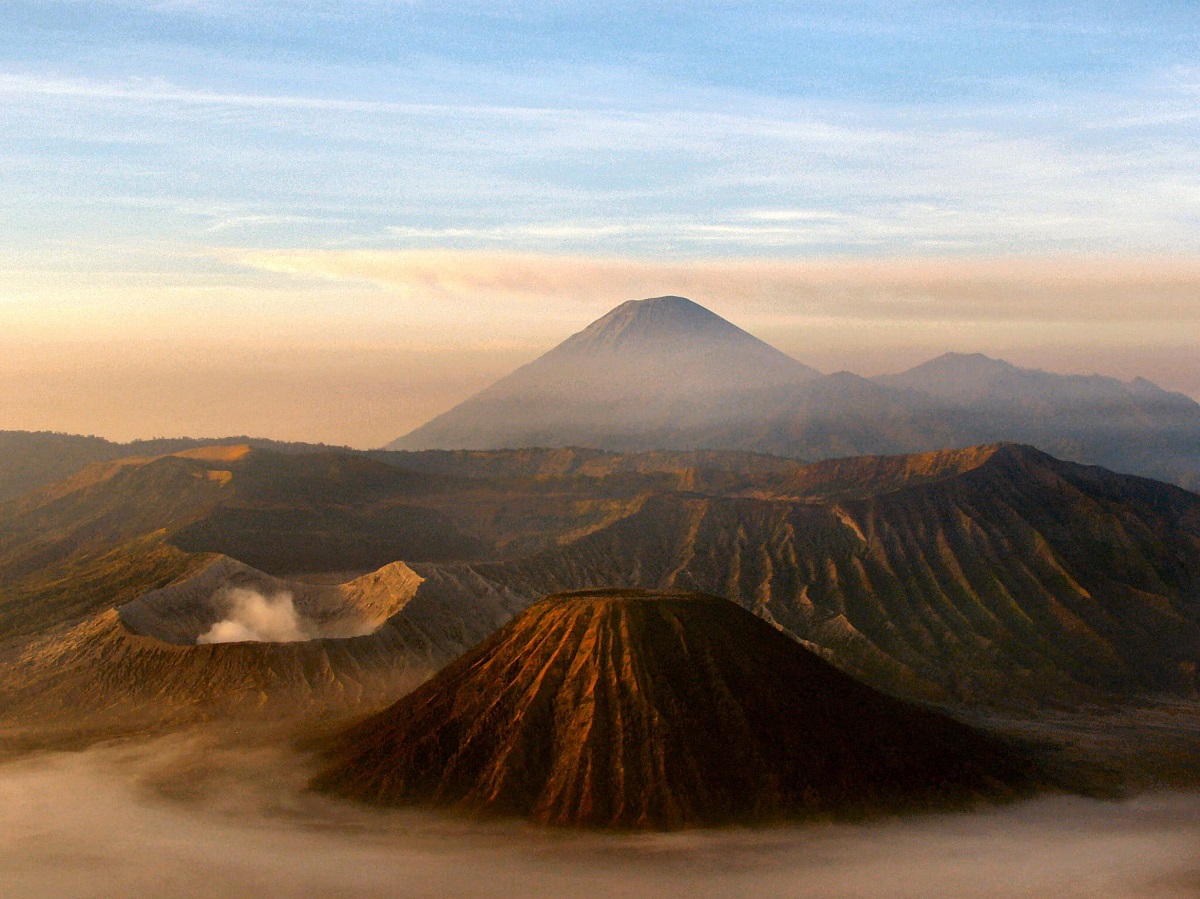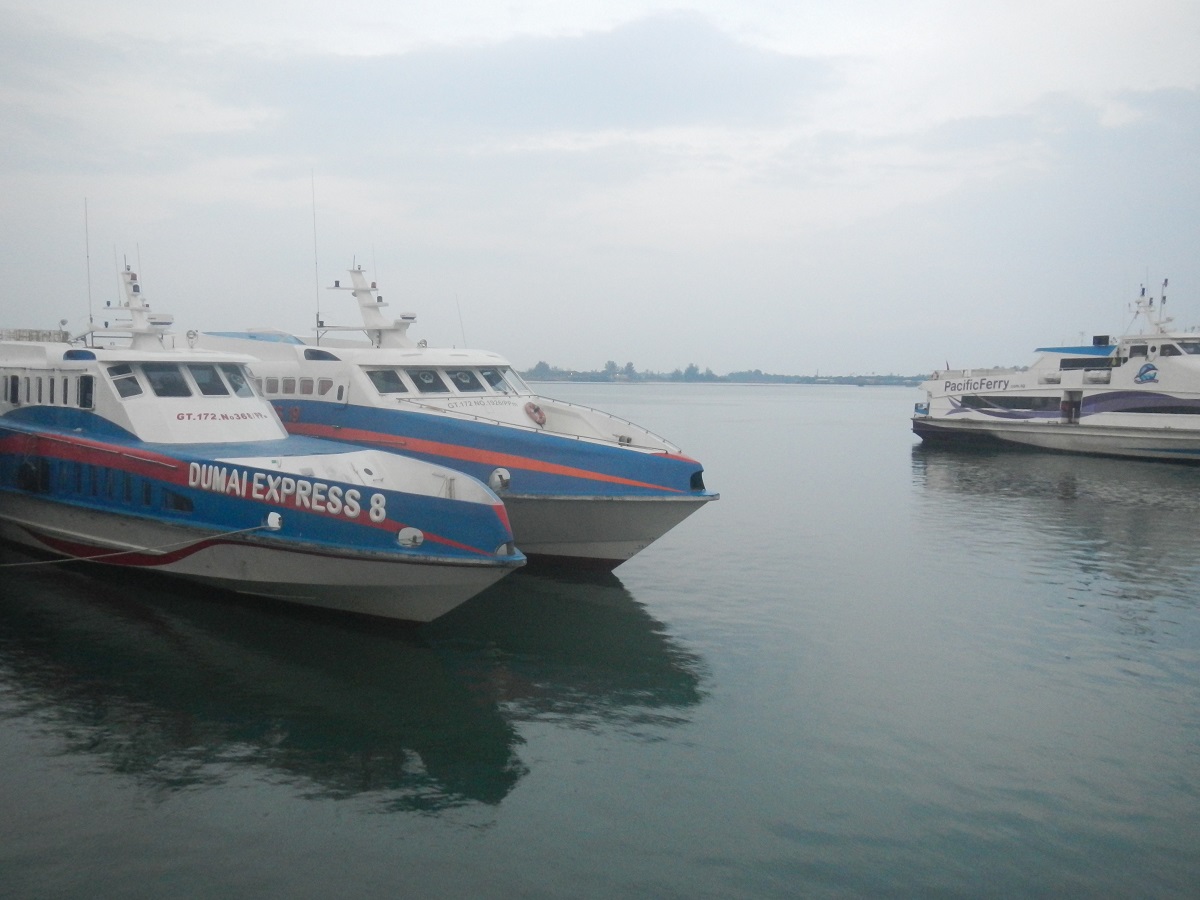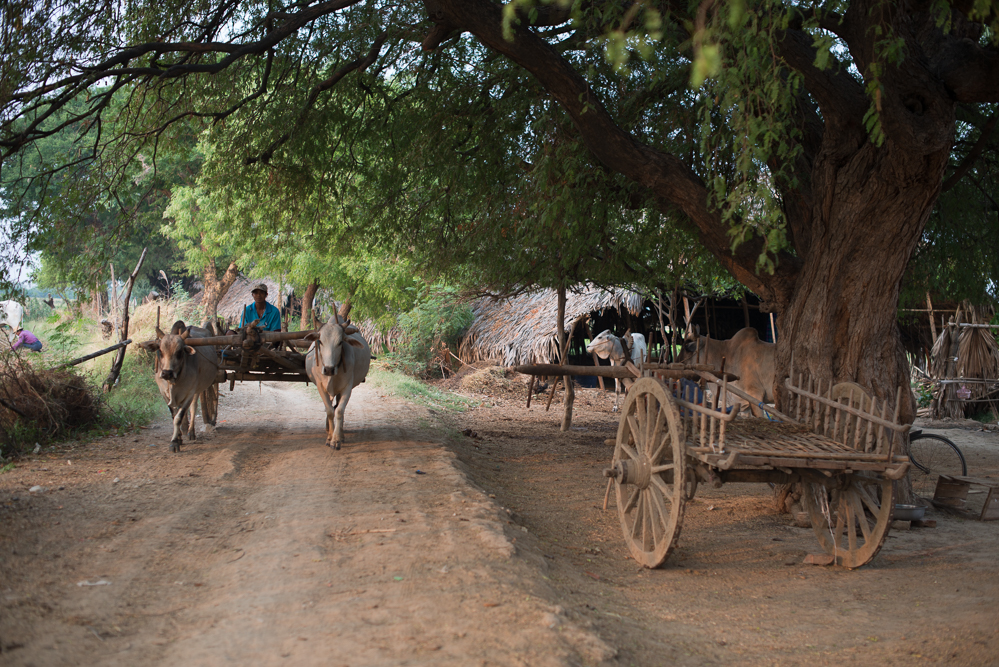Jakarta Post
Introduction
Twenty-nine-year-old Dutch travel writer Tieme Hermans had a dream to visit Indonesia. Instead of booking a flight, he simply hopped on a bicycle and left his home town in the Netherlands. To fully emerge in local cultures, Tieme never stays in hotels, cooks most of his food on his compact camping stove, and enjoys getting lost in unexplored corners of the world. After cycling for nearly two and a half years through 32 countries, crossing Himalaya-sized mountain ranges, three scalding deserts, and the Central Asian steppes, Tieme has reached Sumatra, from where he will share his adventures.
Some things just never change. Even after crossing all these borders from West to East, I still feel excitement rushing through my veins when seeing new land on the horizon. As if I was a teenage groupie who finally gets to meet his pop idol. Curious to see what awaits me on the other side of the Strait of Malacca, I lean over the railing of the ferry as it approaches Sumatran shore. Indonesia emerges from the afternoon haze and I stand eagerly at its gate, ready to plunge into a new, unknown world.
As I pass the ‘Selamat Datang’ sign and roll ashore, my speedometer quietly congratulates me on reaching my 30.000th kilometer this journey. A victory I celebrate with my Batak friend Merlina, who is awaits me at the docks. On our way to her family’s home on the outskirts of town, I can barely digest all the sights and scents surrounding me. Enjoying the scenery is not my top concern right now since I need my full focus on holding my position in a dance amongst the swarms of growling motorbikes while trying to catch up with Merlina. When we make a quick stop at a street-side market, kids in shiny baju koko and matching peci on their heads instantly flock around me for pictures, giggles and high-fives.

After a week in Singapore’s overdone perfection, unreal cleanliness, and hurried pace of life, Sumatra feels like waking up. Walking the streets of a Dumai neighborhood reminds me I am in Asia again; infectious energy emits from the busy street life, neatly prepared dishes behind glass in the warungs, steam around a sate selling motorcyclist and flowers everywhere I look.
I count myself lucky to arrive around lunchtime. After greeting Merlina’s extensive family – help, how to remember all of their names? – mouthwatering dishes start appearing, one after the other. But not a single fork or spoon on my plate. Having learnt from earlier experiences in Myanmar, Malaysia and Arab countries I happily dive in with my right hand until I notice some confusion beside me. I am doing it all wrong. Eating with the hands is done differently everywhere, so the family father patiently teaches me to do it the Indonesian way. This reminds me of my first day in China when ten children stood by laughing tears as I clumsily tried to eat thick oily noodles with chopsticks. This time, I manage to master the local technique quite well while the family is showing examples of how their previous German and Russian guests tried to shove rice into their mouths by hand. It resembles something as elegant as filling a wine glass with a fireman’s hose, and I feel a little less foolish.
We take time eating in a circle on the straw mat floor while Merlina and her siblings share today’s happenings and neighbors drop by for a quick chat and to say hello to their guest, contributing to the sweet scent of kretek in the house. When you are a guest in Indonesia, you are not just a guest of the family, but a guest of the entire street. Merlina’s family and friends want to know all about my adventures in far-off places like Tajikistan and Mongolia, what it was like to stay with nomadic families and to not see anyone for days, and how it felt to face snow storms. In return, I ask them at length about their lives, and start my personal Indonesian dictionary on the cover of my notebook. Saya dari Belanda. Got it!
When some in the family take a nap after lunch, my curiosity keeps me awake. I take a digestive walk to explore the neighborhood through the paddies, which start right at the back door. I am overcome with excitement to be here, taking in the first taste of real Indonesian kampung life. As I pass by, villagers call out their children, wave happily and welcome me with broad smiles as if they greet me on behalf of the entire country. I enter a spontaneous game of domino with three opa’s, take my weekly dose of sugar in one cup of teh manis and join an extensive photo session with the youngsters to make sure Facebook knows there is a buleh in town. Showered in hearty Indonesian hospitality, I slowly take in the atmosphere of countryside around sundown. Life here is peaceful-yet-noisy, a place of soul and simplicity, built on the sweat of generations that claimed these lands from the mangrove mud. These outskirts hardly ever see any foreigners, so walking around this hidden beauty in the shadow of Dumai feels like a true offbeat find. Once again I think that only on two wheels I could make such a discovery.

I wake up to the sound of little fists banging a door with the uninhibited enthusiasm only found in children. Who, what, where am I? Confused I wrench myself from Morpheus arms and I need a few seconds to remember my location. Last night, weary from the crossing and the impressions from a new world, I fell asleep like a log in a room besides the family house. Here Merlina teaches English to the youngest generation that is waiting impatiently to meet me. I sit up, splash some water in my face and open the heavy sliding doors. A pack of neatly uniformed four to eight year olds storms around me from both sides, curiously peeking at the bike, bags and the buleh in their classroom who only just realized he woke up in Indonesia. Over the years on the road I already slept in dentist rooms, a cave, on market stalls and in my tent under the stars, but waking up with these young, smiley faces must be among the happiest ways to start the day. Still rubbing my eyes I sit on a low bench in class working on basic chit-chat in a blend of English and my first words of Indonesian, surrounded by my new friends. I think we can learn from each other.
Today, I take the liberty of not cycling anywhere. One of the great benefits of traveling alone is that you never need to consult anyone about the who, what, where and why. If I want to move, I move. And today I decide to stay. Of course I am curious of what lies ahead, but discoveries do not always lie in distance you cover. Often staying in one place to slowly learn about the area you are in is even more rewarding. Slow traveling seems wise in these hot Riau lowlands anyway, so I calmly stay on my bench with the children till class starts and, as always when I change my plans, I feel liberated from the temptation to go quickly cycle to the next destination. I tell myself to keep reminding that, according to Taoist wisdom a good traveler has no fixed plans and is not intent on arriving.
‘Can you ride a motorbike?’ After finishing class Merlina looks at me challenging when I agree to join her to town. It does not seem like the most appealing plan to move back into that chaotic swarm called everyday traffic, but after some trial (and error) in Vietnam, Cambodia and Thailand I feel brave enough to hit the road. Take a deep breath and go. Each type of street poses new challenges to a novice rider; overcrowded village roads around the market place make everyone twist and turn to puzzle their way out of the jam of hand carts, lorries and mobile food stalls. And the main road just seems like a mad frenzy where I am forced to partake in a race, or rage, that has beginning nor ending but is always on, dodging potholes, sudden road break-ups and sleeping police men while ignoring red lights.
Used to the rhythm of the road by now we dive into Indonesia’s cultural diversity. First we visit a Chinese temple where I wander among angry red statues with giant halberds besides peaceful statues of the Buddha, then we drive by a mosque on the outskirts of town around praying time and before I find my classroom again for the night we attend a Batak church gathering. In a humble family home outside Dumai I witness the community spirit as the congregation passionately sings their songs of praise into the night. After my second day in Indonesia I already feel like being here more than a week. Indonesia throws itself at you and from the moment you set foot you become part a heartbeat that throws you into a world full of life, sound and wonderful friends. When the hallelujah’s fade inside we take a quiet ride home through the paddy fields where I shut the sliding doors behind me.
After another jolly wake-up with the neighborhood kids, I fill my tires up with air and myself with a breakfast so spicy I will have enough pedal power for a day. We wave goodbye and I set off to do what I do best. East, East, East I move. Like from the day I left home. With latitudes fading, multitudes passing and sand crackling under my battered tires I hit the hot and dusty Riau road towards the mountains of West Sumatra, with only my map to predict what lies ahead.




